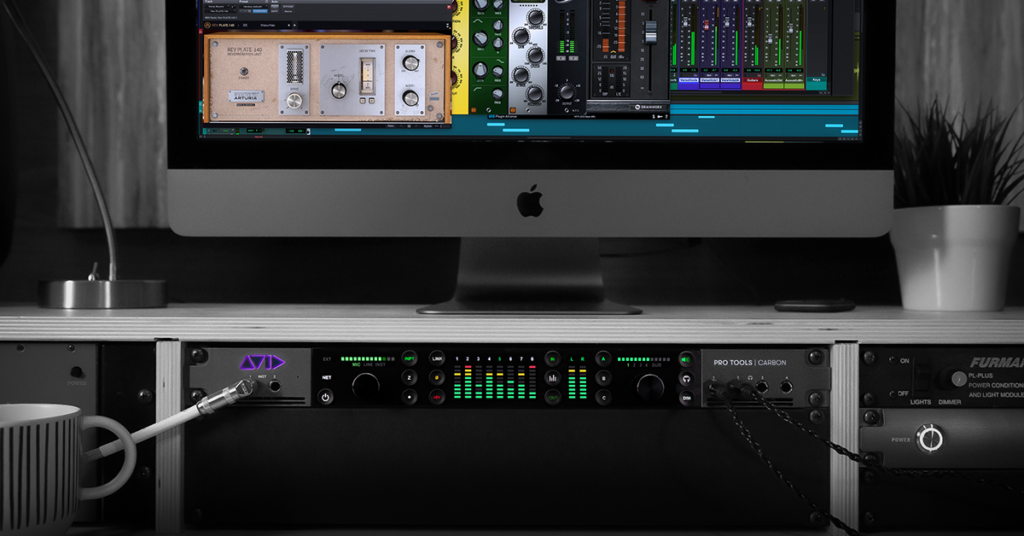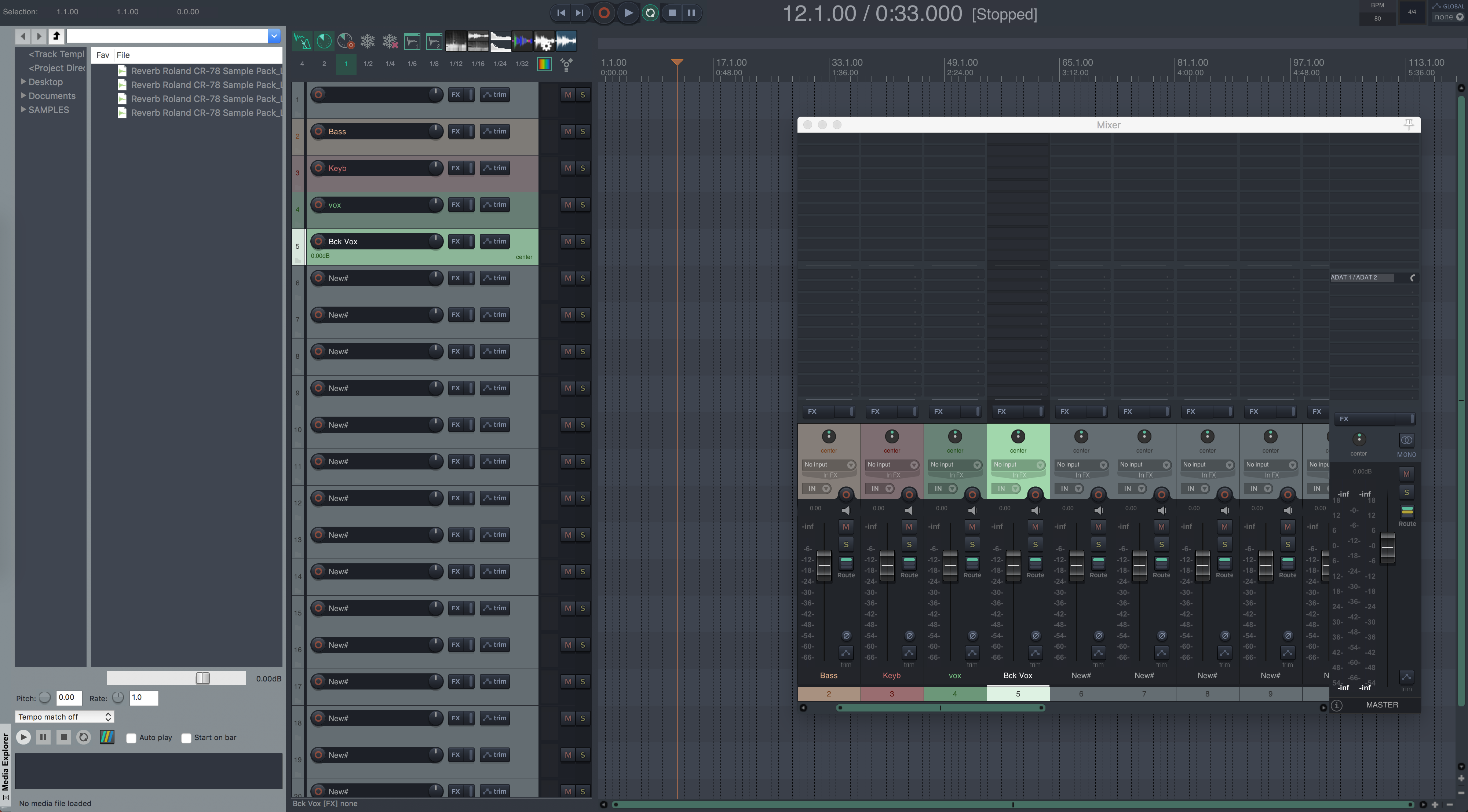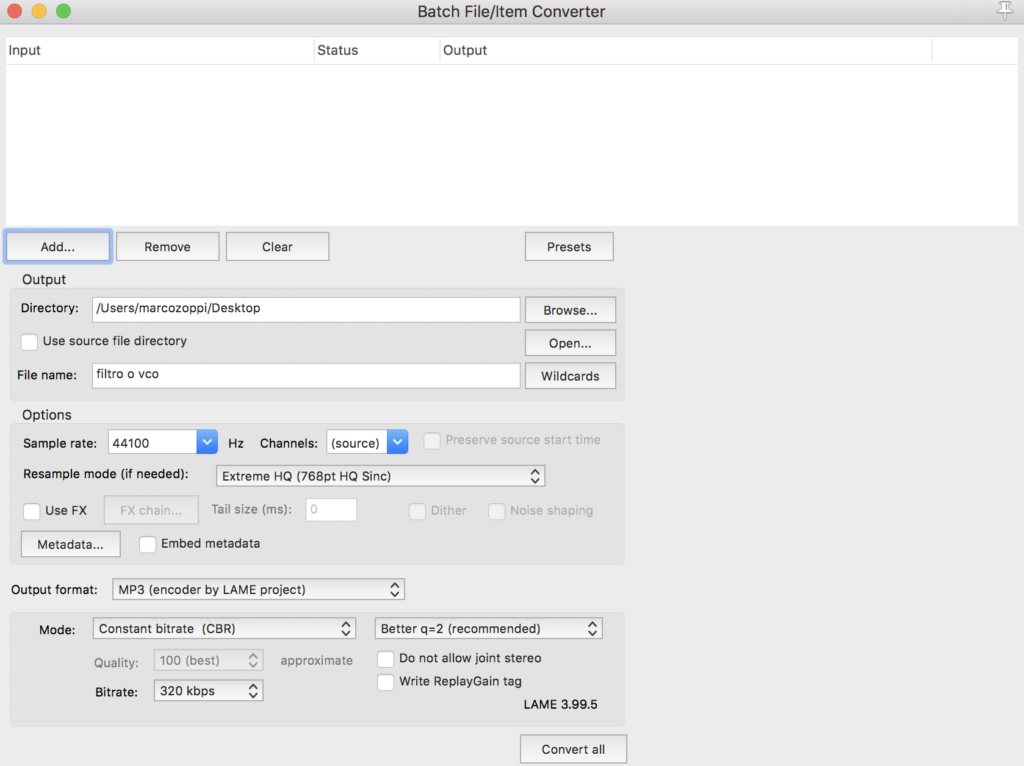We need to face it, Pro Tools is still a standard in professional audio production, I worked with multiple artists and in different situations and I always ended up in one way or another using Avid Pro Tools.
Once in a lifetime, someone will tell you :”yeah Pro Tools it’s a dinosaur but it’s the Standard you have to use it”.
So basically yes, it’s still a standard, and really like some features in Pro Tools, but mostly it comes as heritage of studios, have you ever ask yourself ” how studios deduct taxes ?”, often with hardware investment, let me explain this a bit.
I’ve spoken with a lot of studio owners and told me so, when you ran a studio you have big incomes and few outcomes that can be deducted from taxes. (maybe I should use “had” btw) .
So an investment in renewing workstations, software and hardware can be deducted and also give new appeal to a studio (At least in the countries I’ve worked).
You have to get the latest best solution for musicians that want to record in your facility.
That’s not the sole reason for using Pro Tools, for sure Isa great daw, but the promise of deducting taxes made studios for years better digest the expense for the latest avid system with hardware accelerator etc.
Since my job is in pro audio I still need to use pro tools, because I’m asked to, but when I’m working on my personal projects, I don’t see any benefits from it.

We need to address the elephant in the room:
“Pro Audio was mostly a professional subject until few years ago”
There were few cheap Audio interfaces and mostly they were bad.
I had like almost everyone from my generation an M-audio Fast Track Pro ( yep the blueish one).
They sounded nowhere near as good as a modern scarlett 3rd gen.
So back to our main topic, from a technological point of view, there is no best moment to be an independent musician, beside one of the worst historical scenarios for professional artists with this pandemic, and the lowering incomes from music jobs.
You can record an entire album on an iPhone and deliver it worldwide in the same evening ( and be to bed early for school next day).
As a 27 years old professional I’m facing a lot of financial “strong times” as all my colleagues, but the flexibility that music-making reached today help me a lot to reach people wherever I want.
I can make music on the go ( well…almost, if we ignore the quarantine), I can record remotely with a quarantined artist I’m working with, I’ve even published a single from my living room ( in case you missed it here’s a link to hello_world on Spotify).
So why keep using a pricy daw that force me to use iLok, my desktop workstation and have a problem once out of three recognizing my audio interface on startup.
I’ve paid almost 500€ to Avid in the last two years for owning nothing.
It feels like paying a pricy gym membership.
So after trying out various daw demos I’ve landed to Reaper.
I’m not new to Reaper, I’ve tried it in the past and I have some friends in-game audio who use Reaper a lot, mostly for easy integration with Fmod.
So it was worth a shot.

My main weekly tasks are:
- Recording indie artist music
- Sound design for audio assets
- Samples recording and post-production for my Kontakt/audio libraries
- And always too little recording my personal projects
All things that Pro Tools is good at…well…not best at imho.
Let’s analize point to point why Reaper helped my daily task.
First, when you work with indie artist there’s not always a shiny modern studio insight (or better vintage).
“Homemade lofi sound” sometimes is not only an artistic choice It’s a necessity.
And with the pandemic remote work is a necessity too, so sharing audio stems, projects and sometimes even” in sync remote preview listening” became necessary too.
There’s a lot of services that can help you on that, like audio movers, but are there any implemented in a daw?
Yep Reaper have it !
And also Reaper with its lightness and “Perpetual trial” can be installed almost on every computer, so I can share a project directly to my costumers and they can open it !!!
So first reason.

Moving on, we need to speak about the next one, Reaper for audio assets.
This is a tricky one, there are many reasons but speed it’s the key factor.
First, export is blazing fast, you just choose the items you want and use “batch files/item convert”.
I know there are other ways to doing so but I work on 96/88.2 kHz ( it depends really on the project) and I’m often asked to export on lower S.R. so that’s the faster way.
I know there’s a similar function on Pro Tools, but here’s when Reaper kicks in:
Have you ever tried LKC Variator?
OMG !
I can create a ton of variations of a single audio asset in like what, 2 minutes?
Also in audio assets making there’s a lot of post-work, so I have two custom toolbar button to open Izotope RX and Steinberg Wavelab, and it’s really fast!
Second reason!
Stick with me it comes the third one.

Reaper is light on computers!
Repeat after me: Reaper is light on Computers
So for the ones of you that doesn’t know how Kontakt library making works here’s a small explanation:
A Kontakt library is made of three things:
- The samples
- The code
- The GUI
So if you’re not part of a big Team you have to make a lot of those things by yourself and at the same time.
When I develop a Kontakt library I use 3 software: Reaper, Sublime Text and Affinity Designer plus one, or more instances of Kontakt
So in the preliminary part, the three can run by their own, I tend to work with a scheduled list of tasks to complete one after the other.
But during the final revision, when I have to tweak a lot of things in order to complete the library, is faster to open up every software that you need and change whatever you need to change all at the same time.
So every bit of cpu power and ram Is not only useful but necessary.
So third one gone, Reaper can help me with its lightness to run multiple programs easier.
So there you go, the last one.
First I need to say thank you for reaching that far, it was a long journey and I feel we’re becoming friends ehehe.
If you want to support this blog, please consider sharing this article or if you feel generous to consider to subscribe to my mailing list.
Or if you’re the reincarnation of a saint you can directly support this blog by buying one for my libraries or assets.
By the way, here’s an honorable mention before the last one:
I like to code, in my spare time.
I’ve coded some side project, like the new hemisphere firmware for Ornament and crime module I’m working on, or some cool little VST plugins I’ve done in past.
So a feature I still need to explore is the JSFX coding, but by the sole fact that’s something like this it’s possible I’m thrilled about it.
So last reason: the community and the spirit.
Don’t get me wrong Duc forum people are great ( The Avid products forum), but the Avid support is not.

With Reaper the forum and the Company support are one thing.
And the spirit behind and all the hard work made from such few people move me ethically.
When you choose to pay a Reaper license you’re paying a developer, not a corporate.
I know, there are a lot of good developers at Avid, and they’re people too, but you can’t compare a smaller business like Reaper to a leading company that actually bought and maintained a software rather than create one.
Yep, I’m a bit radical here, but we need to re-humanize technology since we’ve dehumanized the world because of technology.
So with this bold statement, I’m ending this post about the 4 reasons made me switch from pro tools to Reaper.
Oh , sorry the last one:
Reaper is 60€ with updates till a new major release, Pro Tools is 279€ a year for a subscription.
And there’s a dark mode too (*wink*).
mz2250
Leave a Reply